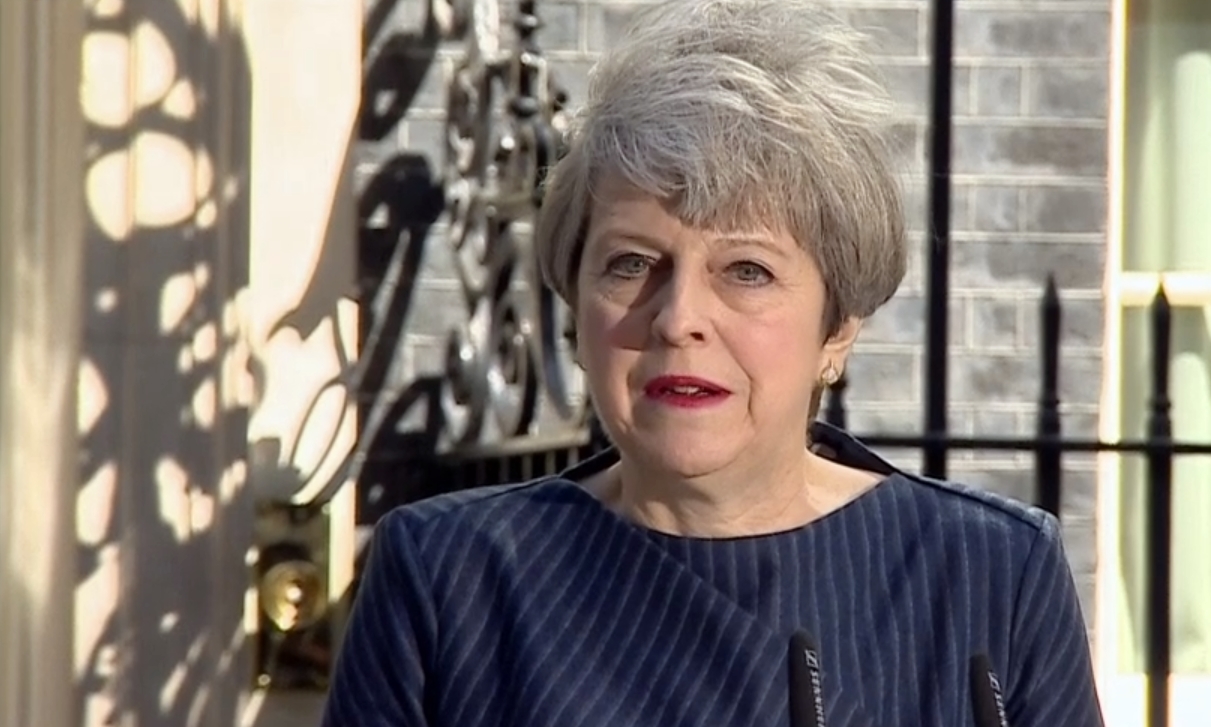When I was three-years-old, my granddad caught me making mischief in his house. “You’re just a wee saboteur,” he told me.
Always one to run my mouth, even at a young age, my response was: “No I’m not. I’m a sabo-three-er.”
I’m not quite sure where this leaves me in the eyes of the Prime Minister.
Talking back is obviously a sure-fire way to lose Brownie points given the tone of Theresa May’s statement announcing a snap general election.
Referencing the UK Government’s strategy for leaving the European Union as she announced the snap general election, the Conservative leader said: “This is the right approach and it is in the national interest, but the other political parties oppose it.
“At this moment of enormous national significance, there should be unity here in Westminster, but instead, there is division. The country is coming together, but Westminster is not.
“In recent weeks, Labour have threatened to vote against the final agreement we reach with the European Union, the Liberal Democrats have said they want to grind the business of government to a standstill, the SNP say they will vote against the legislation that formally repeals Britain’s membership of the European Union and unelected members of the House of Lords gave vowed to fight us every step of the way.
“Our opponents believe because the government’s majority is so small that our resolve will weaken and that they can force us to change course.”
It is little wonder one national newspaper got particularly excited – although it was far from alone in being over the top with violent language less than a year after Labour MP Jo Cox was murdered on the EU referendum campaign trail – and splashed the headline “Crush the saboteurs” on its front page.
The thing is, this is a Prime Minister complaining about parliament doing its job in holding her to account and forcing changes to legislation it does not see as being in the interests of the country.
That is a large part of what we elect MPs to do.
As well as handling case work and helping their constituents, our politicians should be shaping the big picture and speaking up when they feel something is not right with the direction of travel a government is taking.
In making her almost Orwellian remarks – “All their ferocity was turned outwards, against enemies of the State, foreigners, traitors, saboteurs, thought-criminals,” is of course a quote from 1984 – the Prime Minister appears to have forgotten an entry level question posed to every wannabe Courier political reporter.
“What is the difference between government and parliament?”
The answer, of course, is that government is elected to run the country day-to-day and propose new laws.
Parliament, meanwhile, is there to represent the people’s interests and make sure they are taken into account by the ruling administration of the day.
No new legislation or changes to taxes are possible without parliament’s agreement.
When 10 seconds is taken to think about this, it is patently obvious that parliament should be divided.
It is there to scrutinise robustly, not to support the ruling administration under any and all circumstances.
Such principles are more important now than ever before with the upcoming Brexit negotiations.
We want the best deal possible to be secured for the country, which means opponents needling the government as it goes along.
The opposition is not called to opposition because it agrees with the administration.
It’s amazing how much better some people, particularly government ministers, perform under pressure.
That doesn’t necessarily mean smashing the system or bringing down the government although saboteurs are key to democracy in their own way.
They are the ones who step in and stop something bad really happening but if the parliamentary process is working correctly their interventions should be rare.
That is now what the majority of those MPs who are brave and bright enough to speak up are seeking to do, however.
By talking back and speaking out of line, both in the debating chamber and through powerful committees, they can shape and mould government policy to at least soften some sharp edges and in some cases fundamentally change the course of legislation.
Strong, sharp opposition from all benches should be capable of reforming most laws to make them something approaching acceptable to the majority of the population.
You may try to crush the saboteurs, but you are unlikely to ever silence the sabo-three-ers.
